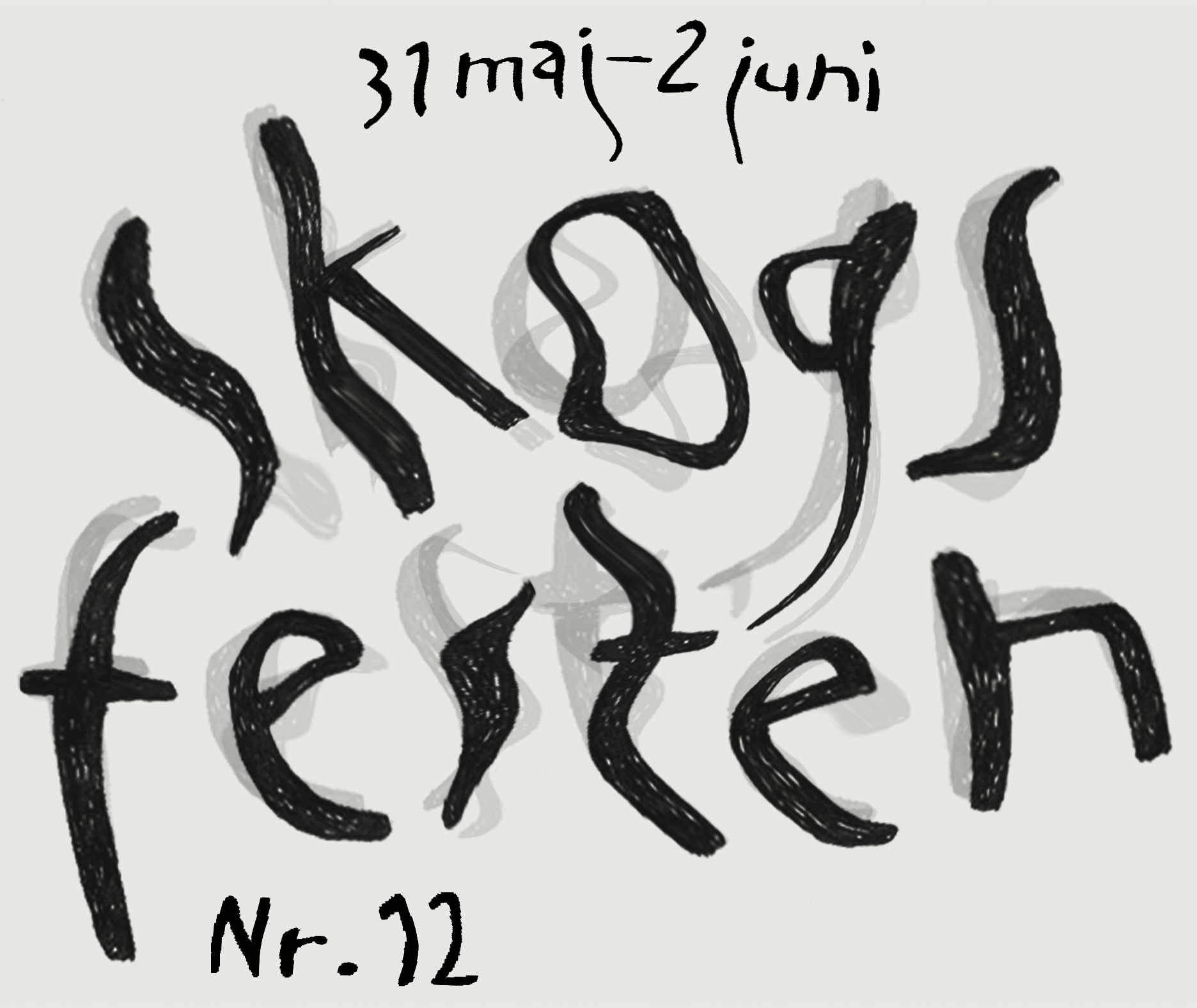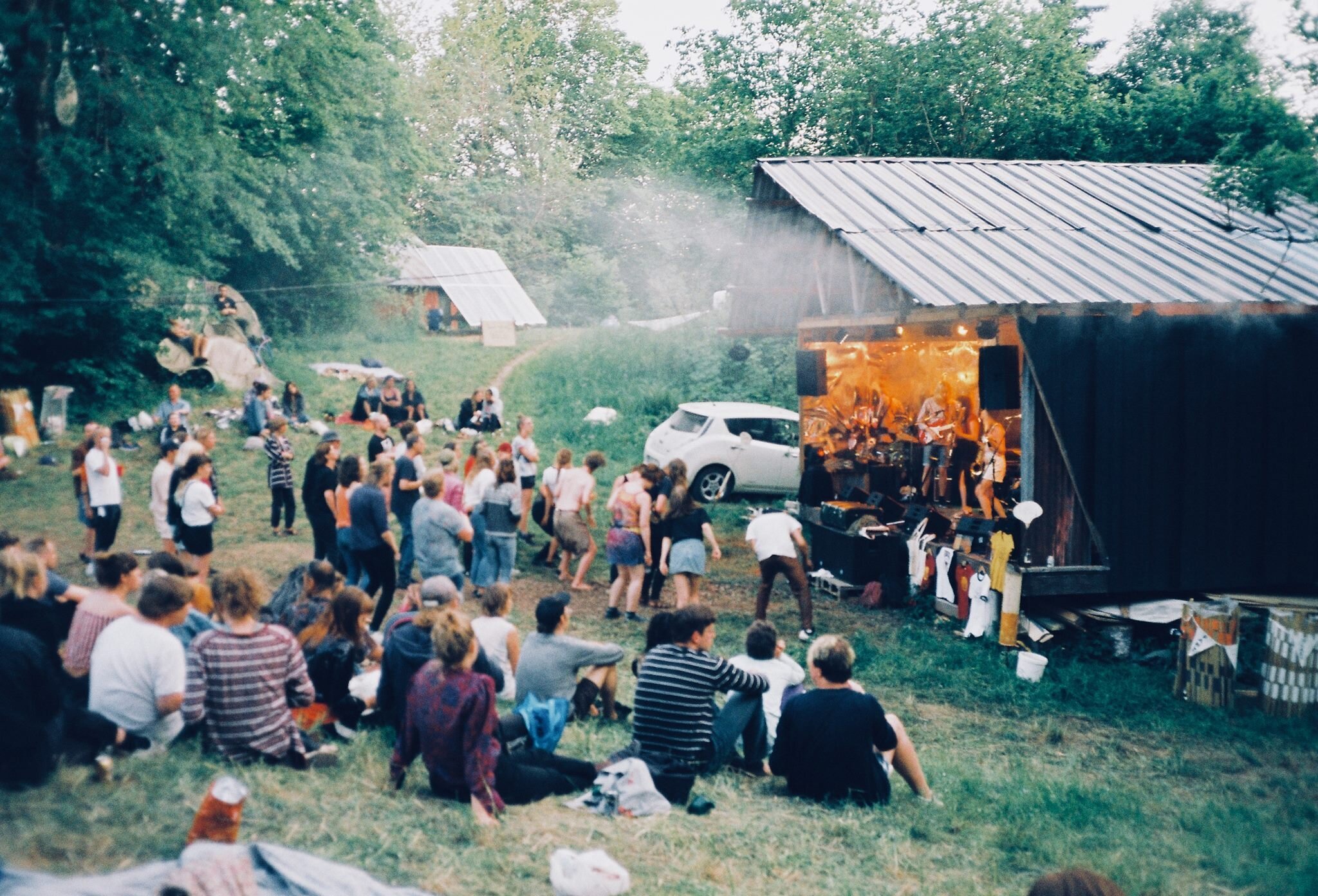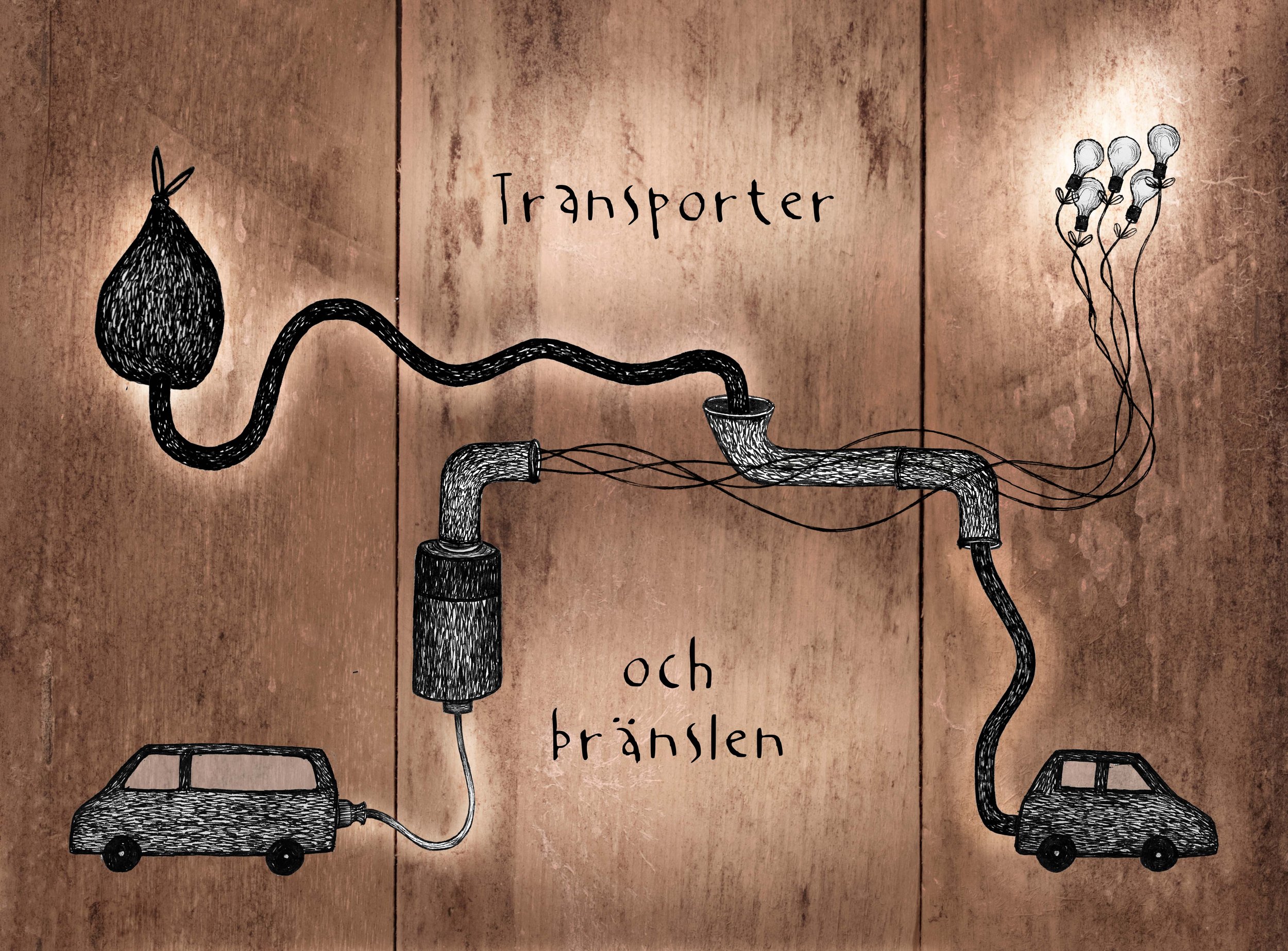Environmental work
One of the main reasons Skogsfesten exists is that we want to show just how environmentally Ok a festival can actually be. The largest part of our work is in analysing our work to see where we were worst, how we can improve, and how we can do it in the most fun way possible; because it should be fun and kind for both the environment and other creatures.
-
We spend a lot of spring weekends hammering and sawing in our buildings out in the forest. The past few years we’ve renovated the barn and built toilets, a big scene and a DJ house. So how do we manage all this while being as kind as possible to the environment?
Well! We try to build as much as possible out of waste materials. Discarded, abandoned scrap which would often be burnt up for no good. We might as well use it to build mighty fine houses, signs and other fun stuff.
Do you know of materials that will be thrown away? Holler at us and we will come save it!
Lately we’ve also started to work more with old building techniques and maintenance, trying to take care of the old houses on the festival area. In a traditional and environmentally friendly way. Right now we’re working on insulating our oldest timber house.
When it comes to stage equipment and everything else that belongs to the technology around the festival, repairing is our motto. Through many study groups, we have learned to repair things that would otherwise be thrown away; everything from speakers to lights. We also shared the stuff with our friends festival Algotfestivalen a few years ago, and over time the business Returkultur developed from this collaboration. Today Returkultur is a separate non-profit association that deals with recycling, sharing and environmental work in arts and culture. They collect stage technology and other gadgets that would otherwise have been thrown away or that are unused, repair in educational forms if it is broken and then lend to cultural actors.
-
We call it “wastecooking”. So what’s that about? Basically one of the biggest environmental issues we see today – all the food that ends up in a trash can, instead of in various stomachs. We’re talking about food waste! How do we get out of this tremendously chaotic nonsense? The Animals in the Forest (Djuren i Skogen) does it in cooperation with the amazing Resursrestaurangen, who in turn cooperate with supermarkets in Gothenburg. Together we save food that stores were about to throw away, cook it, serve it and eat it!
So how fresh is this? Super fresh, actually, and yummy! Come to Skogsfesten and taste for yourself! Our kitchen serves breakfast, lunch, and dinner during the whole festival. Everything is vegetarian and cooked from food waste, any saved animal products are clearly marked and all the food and drinks that we buy as supplement are always ecological. For the cooking and hot water we’ve built a rocket stove out of an old bath tub and some old cast iron knick-knacks.
-
Packaging waste is difficult to avoid. Our reusable mugs have long since outcompeted single use packaging here at Skogsfesten. Every year we ask ourselves where we can improve and put our environmental work under the microscope. In 2018 we started with the forests’ own deposit system during the festival, to work more towards drinking on tap instead of creating a bunch of can and bottle waste. The study circle in kombucha was started and resulted in 150 litres brewed before the festival. We also serve beer, lemonade, and other drinks on tap.
Remember not to bring any unneccesary trash to the forest, sort the waste that still ends up in our recycling bins (and try to buy more package free at home for that matter!).
-
We’re trying to get to one hundred percent fossil free transport with Skogsfesten. All transportation of everything we need to move around, from people to loudspeakers, to food waste, to scrap boards, is driven as often as possible either with electric cars from our local electric car pool or by fuelling with HVO.
Electric cars are what we mostly use when getting from the city to the forest to put together a festival. Of course, the range does require some planning when going on a long trip. But who doesn’t want to take a break and be forced to enjoy life a little once in a while? We sure do! Djuren I Skogen rents cars from our local electric car pool.
Hydrotreated vegetable oil, HVO, is a pretty neat alternative to fossil diesel. All cars that can run on diesel can also run on HVO. It is a kind of synthetic diesel made from hydrating plant- and animal fat and is mostly made out of rest products and waste, like vegetable oils and fats. HVO still leads to carbon emissions, but is a good alternative in the transition to a completely environmentally friendly society.
-
How do we get the lamps to light up and the singing to echo far out into the woods? In 2016 we achieved a goal we had long worked for: the whole festival was driven fossil free! Our solar panels stand proudly on the hill and pull in energy for us during the whole festival. When the sun wanders across the sky we have to jog up on the hill and turn the panels.
Skogsfesten has borrowed about 4 kW solar panels, gotten a hold of two tonnes of batteries and a whole bunch of inverters from thrown away UPSs from server halls all over Sweden. (We also had the luck to borrow a generator that we run with HVO fuel, and we use it when the sun doesn’t shine enough.)
-
Description text goes here









